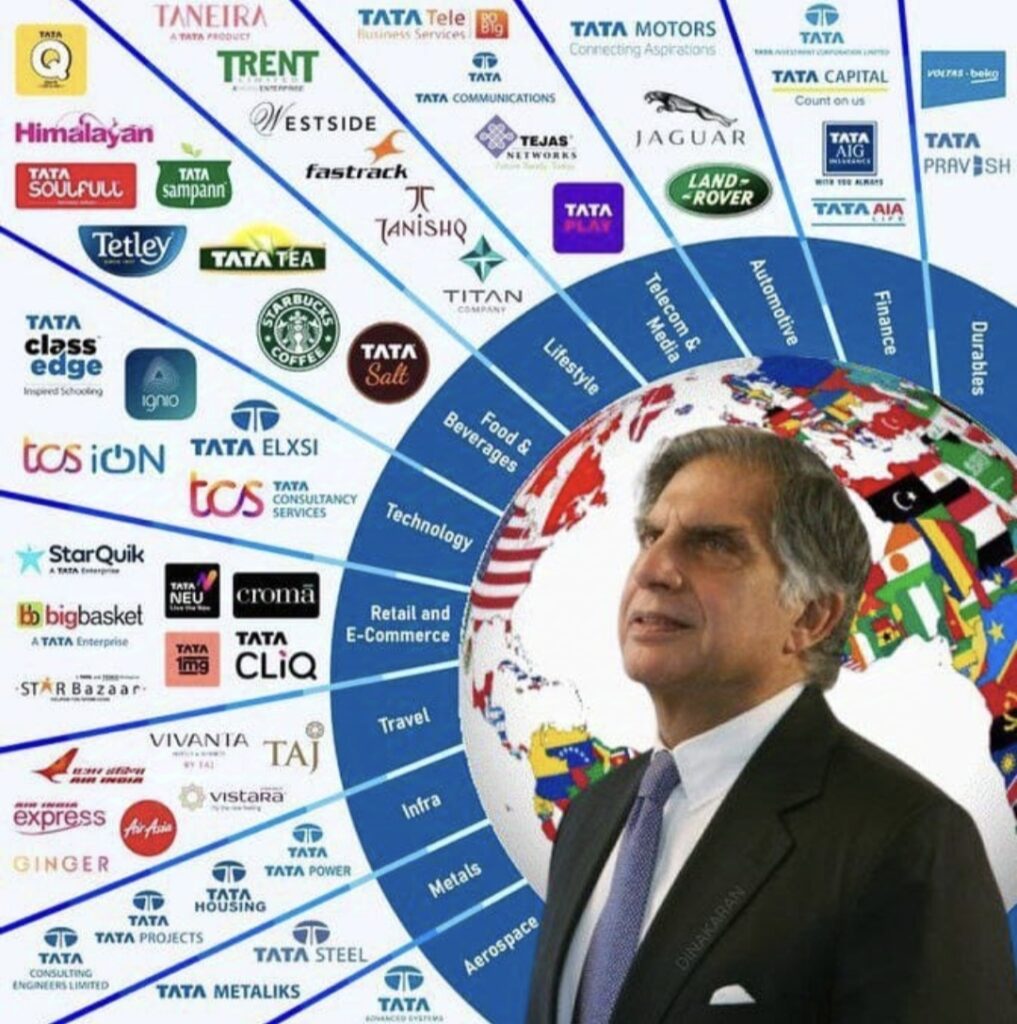Ratan Naval Tata, one of India’s most respected industrialists and philanthropists, was born on December 28, 1937, into one of the country’s most illustrious business families. A member of the Tata family, he is the great-grandson of Jamsetji Tata, the founder of the Tata Group, India’s largest conglomerate. Ratan Tata’s leadership and vision transformed the Tata Group into a global powerhouse, contributing significantly to India’s industrial landscape.
Early Life and Education
Ratan Tata was born in Mumbai to Naval Tata and Sooni Tata. His parents separated when he was young, and he was raised by his grandmother, Lady Navajbai Tata. He studied at the Campion School and later the Cathedral and John Connon School in Mumbai. After completing his schooling, Ratan Tata pursued a degree in architecture at Cornell University in the United States, where he developed an interest in both architecture and structural engineering. He later completed the Advanced Management Program from Harvard Business School in 1975.
Entry into Tata Group
Ratan Tata’s journey in the family business started in 1961 when he joined the Tata Group as a general worker at Tata Steel, working on the shop floor and learning the nuances of the steel industry. His early experiences gave him deep insights into the workings of an industrial company, and over time, he moved up the ranks.
In 1991, he took over as the Chairman of Tata Sons, the holding company of the Tata Group, succeeding J.R.D. Tata. This was a pivotal moment in the history of the group, as Ratan Tata inherited a large but somewhat fragmented empire. Under his leadership, Tata Group underwent a major transformation, marked by innovation, expansion, and a focus on globalization.
Achievements and Major Milestones
1. Global Expansion
Ratan Tata spearheaded the Tata Group’s global expansion strategy. His tenure saw the group make significant international acquisitions, including the purchase of Tetley Tea (UK), Jaguar Land Rover (UK), and Corus Steel (UK). These acquisitions helped position Tata Group as a global player in various industries, from automotive to steel to beverages.
2. Tata Motors and the Launch of Tata Indica & Nano
Under Ratan Tata’s leadership, Tata Motors launched India’s first indigenously developed car, the Tata Indica, in 1998. While the Indica had a rocky start, it eventually became a success and marked Tata Motors’ entry into the passenger car market.
One of his most ambitious projects was the Tata Nano, launched in 2008. Ratan Tata envisioned a car that could make vehicle ownership affordable for millions of Indians. The Nano, marketed as the world’s cheapest car, was a revolutionary idea that underscored his commitment to making transportation accessible to the common man.
3. Corporate Governance and Ethical Leadership
Ratan Tata is known not just for his business acumen but also for his integrity and ethical leadership. Throughout his career, he upheld strong corporate governance standards, steering the Tata Group with a focus on transparency, social responsibility, and philanthropy. His emphasis on ethical business practices earned him immense respect both in India and globally.
4. Philanthropy and Social Work
Ratan Tata’s philanthropic efforts are as significant as his business achievements. The Tata Trusts, one of the largest philanthropic organizations in India, support initiatives in education, healthcare, rural development, and more. Under his leadership, Tata Trusts expanded its impact, focusing on areas like clean drinking water, affordable healthcare, and quality education.
In recent years, he has been involved in several social initiatives, including the support for startups and initiatives to promote rural development. Ratan Tata’s personal contributions, particularly toward disaster relief and education, highlight his deep commitment to social causes.
Awards and Recognition
Ratan Tata’s contributions have earned him numerous awards and honors, both in India and internationally. He was awarded the Padma Bhushan in 2000 and the Padma Vibhushan in 2008, two of India’s highest civilian honors. He has also received several honorary degrees from prestigious universities around the world and was recognized for his leadership in shaping the Indian industry.
Retirement and Legacy
In 2012, Ratan Tata retired as the Chairman of Tata Sons, handing over the reins to Cyrus Mistry, although he continued to be involved with various charitable and business ventures. His legacy, however, extends far beyond his business achievements. He is widely regarded as a visionary leader who upheld the values of integrity, humility, and responsibility toward society.
Despite retiring, Ratan Tata remains a prominent figure in Indian business and society. He continues to mentor young entrepreneurs and invests in startups, further demonstrating his belief in innovation and the future of India.
Conclusion
Ratan Tata’s life is a testament to leadership that balances business success with social responsibility. His achievements go beyond the boardroom, as he has inspired generations of business leaders to not only build successful enterprises but also to give back to society. His humility, ethical stance, and visionary leadership have left an indelible mark on India’s corporate and social landscape.


